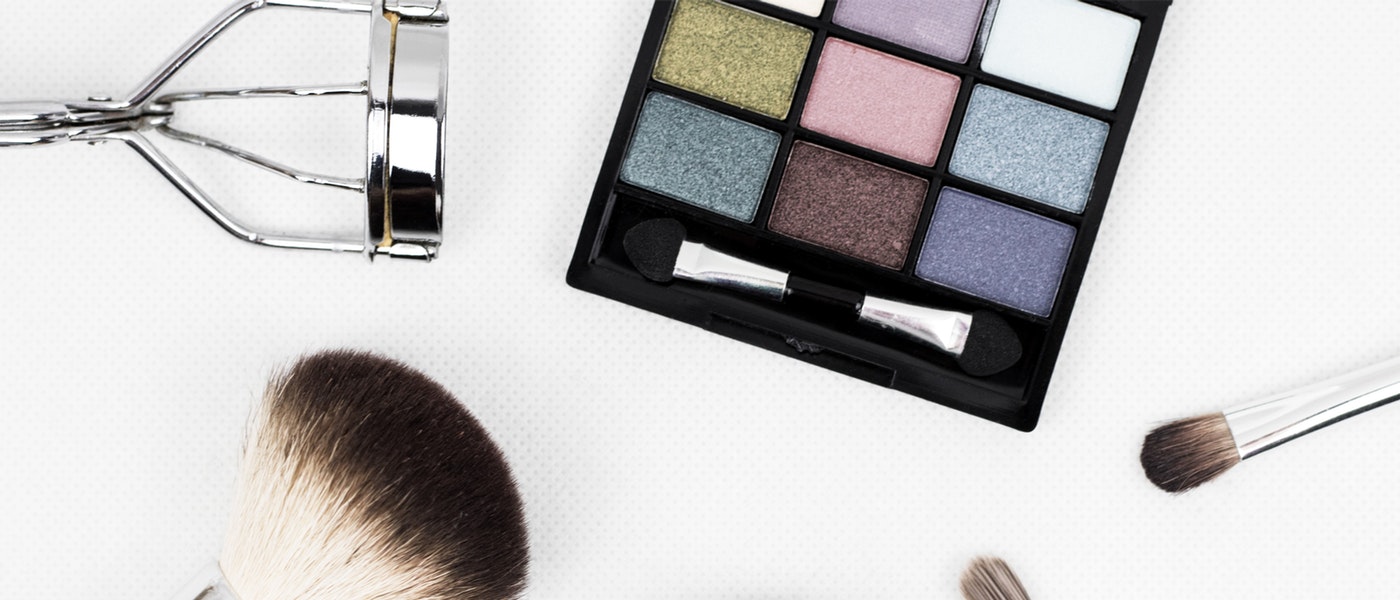The way we look is usually considered as an expression of our character. That’s why it concerns us very much –maybe just a little too much these days. As a Muslim who tries to lead an Islamic life, it might pop into our heads if we are allowed to wear makeup in Islam, use jewelry, perfume, etc. or not.
This question concerns both men and women, naturally a bit more women though. Here, we would like to address the issue in a more general sense; what Islam says about wearing makeup in different situations. And to give a general preliminary answer, as our opening, yes, Islam allows us to wear makeup and jewelry as long as modesty is preserved.
But let us now have a more detailed look at some specific places where the question has been specially brought up and talked of in Islamic traditions:
Makeup in Islam

1. When Praying!
It might surprise you to find out that Islam particularly recommends us –though not as an obligation– to be in good shape, wear our best clothes, brush our teeth, wear perfume, and in short, to wear makeup when we stand to pray.
And so did Prophet Muhammad (PBUH) prepared himself for every prayer (Salat) since “God is beautiful and loves beauty,” [1] and conforming to this verse of the Quran:
“O Children of Adam! Put on your adornment on every occasion of prayer… Say, ‘Who has forbidden the adornment of Allah which He has brought forth for His servants, and the good things of [His] provision?’…” (7:31,32)
2. Wearing Makeup in Islam For One’s Spouse
Maybe this is where wearing makeup in Islam is most stressed on. Both men and women are time and again required to appear in the way that looks pleasantest to their better half, especially in their solitary moments.
It is considered a great merit for a woman to put on her make-up, wear jewelry and perfume to charm her husband [2], and as great a merit for a man always to look neat, well-groomed, perfumed, and dressed up in the way that gratifies his wife, even though it takes a little trouble, and even though it’s not the kind of outfit he likes best [3].
A man or a woman should never have the impression that their spouse is more concerned with how he or she looks to others than to them!

3. In the Public
Here, actually, Islamic Interpretations are varied. On the one hand, all Muslims are repeatedly recommended to look neat and groomed in public [4]. On the other hand, red lines have been drawn where an important Islamic principle is at risk: modesty.
Men are generally allowed to wear jewelry, such as rings or necklace (though necklaces are more commonly used by women in some Muslim countries), but they are forbidden from wearing any golden ornaments, maybe because Islam always wants there to be a certain line between men and women’s appearance, in the same way as Muslim men are required to wear a beard.
Women, too, are allowed to wear make-up, jewelry, or perfume in public as long as it doesn’t make them appear sexually attractive. And of course, the bottom line for sexual attraction could be different from culture to culture. Several verses of the holy Quran ask women to keep a modest look in the public:
“… [tell the faithful women] not to display their charms, beyond what is [acceptably] visible… And let them not thump their feet to make known their hidden ornaments.” (24:31)
This verse mentions an example of immodesty at the time and culture of early Islam. But the rule applies to any kind of appearance or manner which is intended or is very likely, to provoke sexual interest in anybody other than one’s spouse.
Conclusion
According to what we said, therefore, Muslims are very much suggested to, so to say, wear makeup in Islam for praying and for one’s spouse. They are also advised to do so in the public sphere so far as one’s appearance is not in a way that could excite unlawful (Haram) sexual temptations.
References:
[1] Bihar al-Anwar, vol. 83, p. 169
[2] Al-Kafi, vol. 11, p. 165 , Al-Kafi, vol. 11, p. 168
[3] Makarim al-Akhlaq, p. 80
[4] Bihar al-Anwar, vol. 16, p. 249
Source:SalamIslam



